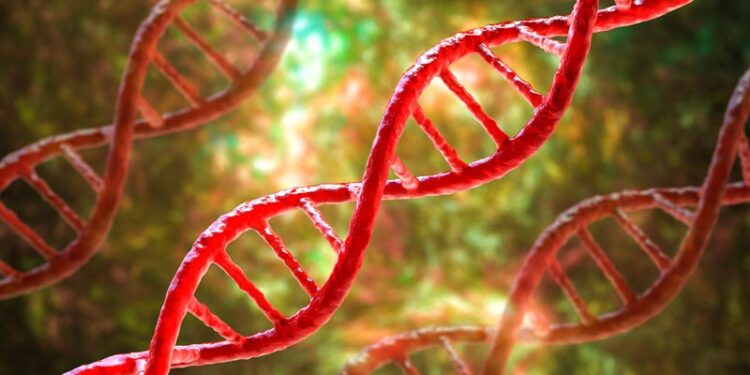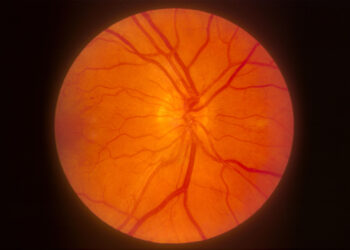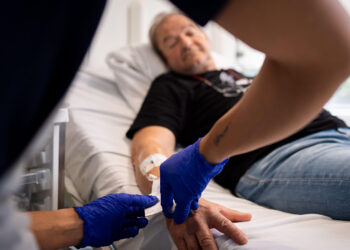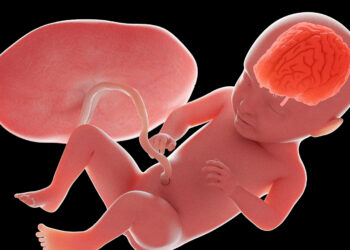One of the priority objectives of research into rare diseases is to develop new treatments, and orphan medicines — which target conditions affecting no more than 5 in 10,000 people in the EU — provide a critical route toward that aim.
A collaboration between the University of Barcelona, Barcelona, Spain, the August Pi Sunyer Biomedical Research Institute (IDIBAPS), and the Rare Diseases Unit of CIBER (CIBERER) has studied the potential application for the preventive and palliative treatment of aortic aneurysms, a characteristic of Marfan syndrome. The study, led by Professor Gustavo Egea, PhD, chair of the Faculty of Medicine and Health Sciences at the University of Barcelona and the principal investigator at IDIBAPS, has identified new therapeutic potential for allopurinol in Marfan syndrome. Working alongside Isaac Rodríguez-Rovira, MS, postdoctoral researcher at the University of Barcelona, and Victoria Campuzano, PhD, senior researcher at CIBERER, the group demonstrated that allopurinol could prevent and slow the development of aortic aneurysms by inhibiting xanthine oxidoreductase and reducing oxidative stress in mouse models. Recently, Spain designated allopurinol as the first orphan medicine for Marfan syndrome under the European Medicines Agency (EMA) criteria.
Allopurinol for Marfan Syndrome
Under European Union rules, orphan medicine is a drug intended to treat conditions that affect no more than 5 cases per 10,000. Marfan syndrome, a rare genetic disorder, affects approximately 7 in 100,000 individuals.
Speaking to Univadis Spain, Egea explained, “We were interested in Marfan syndrome. It is a genetic condition caused by mutations in the FBN1 gene, which encodes the fibrillin-1 protein, a protein essential for the structural integrity of many tissues in the body, as it forms part of the elastic fibres. This disease leads to serious vascular alterations, from abnormal dilation of the aorta, termed aneurysm, to its dissection and rupture. Other effects, although not fatal like those of the aorta, are respiratory such as pneumothorax and sleep apnoea, ocular including blindness due to lens displacement, and musculoskeletal involving muscle and joint flaccidity and tall stature.”
To explore potential treatments, the research team studied the molecular mechanisms involved in the development of aortic aneurysms. Using mouse models that closely mimic the clinical progression of Marfan syndrome, they identified key molecules significantly involved in the alteration and sought therapeutic tools that could interfere with the development or progression of the aneurysm.
Egea explained that “Allopurinol acts as a potent antioxidant that has been shown to halt and prevent the progression and development of aortic aneurysms and dissections. It is already used in clinical practice for the treatment of gout as it is an inhibitor of the enzyme xanthine oxidoreductase, which generates uric acid and reactive oxygen species. Allopurinol is a safe, inexpensive, and well-known drug used in clinical practice. Therefore, the repositioning of this drug for cardiovascular treatment in Marfan syndrome and also for other vascular diseases makes it especially attractive due to its extensive clinical knowledge, its pharmacological safety, and its low cost.”
Orphan Drug Benefits
According to guidelines from the CIBERER, orphan designation from the EMA provides advantages such as exclusive marketing authorization for ten years during which similar products cannot be marketed, access to free or reduced-cost scientific advice and support protocols, and exemption from paying fees for the designation. Furthermore, the entities developing these drugs are eligible for specific subsidies from the European Union and member state programs, which favour the development of treatments for pathologies with little private investment due to their low prevalence.
With the designation of allopurinol, CIBERER has promoted 19 EMA-approved orphan medicines, six of which also hold orphan status from the US Food and Drug Administration in the United States. Of these, eight are gene therapies, and 11 are repurposed drugs, that is, drugs already used for other pathologies and are being evaluated for use in rare diseases. The University of Barcelona has previously contributed to the development of two CIBERER-backed orphan drugs approved by the EMA for cystinuria and megalencephalic leucoencephalopathy.
The Orphan Drug Regulation stimulated the development of new treatments for conditions that were once considered untreatable. Before 2000, the EMA had approved only eight orphan medicines. Currently, more than 200 of these are on this list.
“The designation does not establish that the drug is completely effective; it only indicates that it meets the EMA’s definition of an orphan drug. Therefore, it is necessary to continue conducting corresponding clinical studies to obtain authorisation. International clinical trials of allopurinol are expected to begin in the future. The designation of an orphan drug makes it possible to conduct clinical trials for rare diseases.” Egea noted.
Like any other treatment, orphan-designated drugs must complete preclinical and clinical evaluations before marketing authorisation. Once approved, drugs are authorised through a centralised procedure that grants marketing approval across all European Union countries.
Gustavo Egea declared having no conflicts of interest.
This story was translated from Univadis Spain.
Source link : https://www.medscape.com/viewarticle/could-allopurinol-be-marfans-lifesaver-2025a1000fzm?src=rss
Author :
Publish date : 2025-06-16 04:57:00
Copyright for syndicated content belongs to the linked Source.














